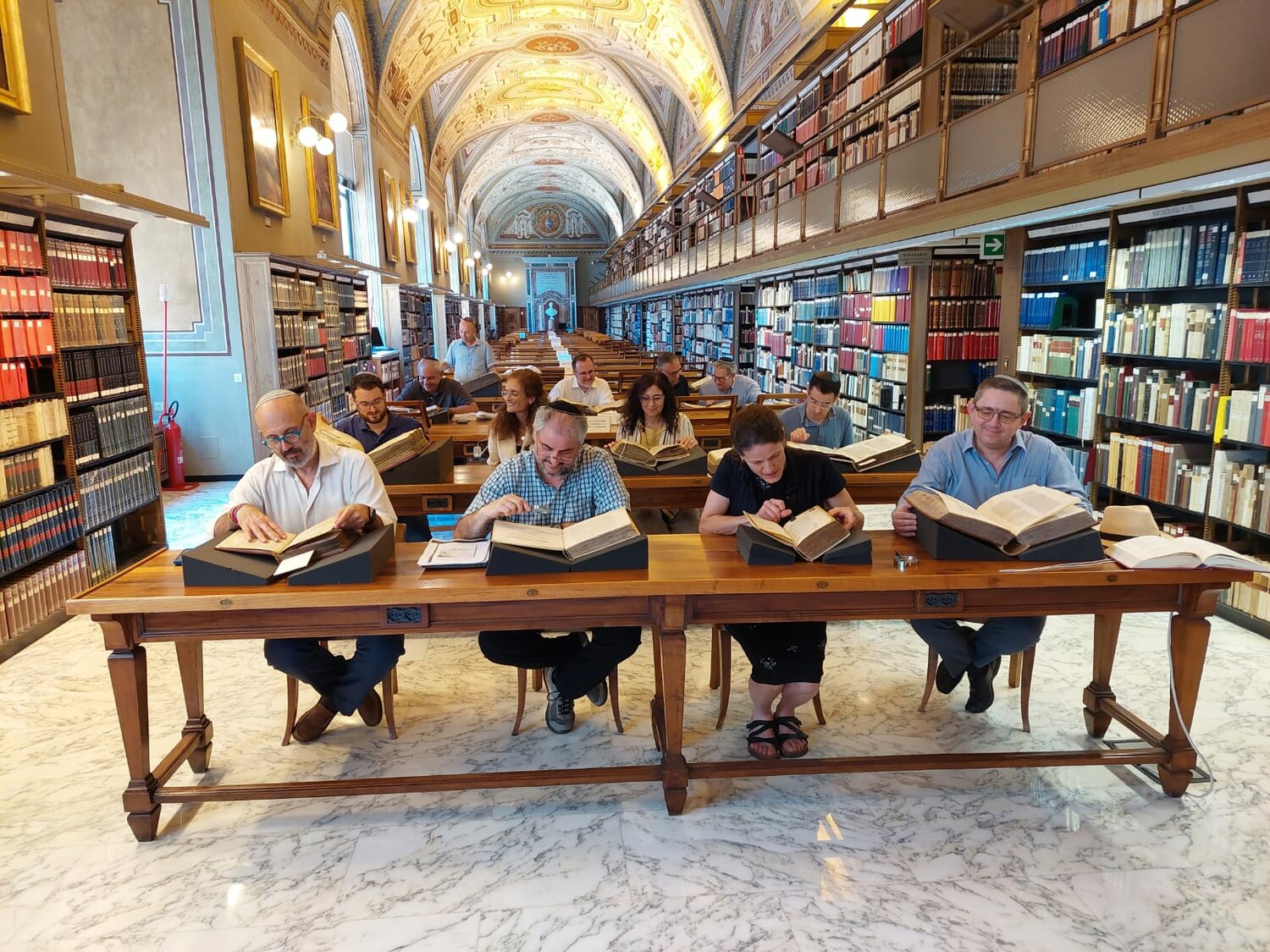This Cedarhurst rabbi studied in Europe with Jews and Christians
Rabbi Claudio Kupchik of Temple Beth El of Cedarhurst described his time in Vatican City, Europe, as “the most wonderful experience.”
But Kupchik wasn’t there on vacation taking in the European sights.
He was one of 20 scholars from different religions and parts of the world for the inaugural interfaith study program on Hebrew manuscripts between the Vatican Apostolic Library and the Latin American Rabbinical Seminary from July 17 to the 21.
With origins that date back to the fourth century, the Vatican Library in Vatican City is one of the oldest libraries in the world. The library is home to a collection of roughly 80,000 manuscripts, 100,000 archive documents, 1.5 million books, maps, drawings and other historical documents. The Latin American Rabbinical Seminary trains rabbis to spread and perpetuate Judaism in Latin American communities.
Rabbi Ariel Stofenmacher, head of the seminary, organized the program after he was granted approval from Pope Francis.
“We are extremely grateful to our brothers at the Vatican Library for their magnanimity in opening their doors and hearts to us to pursue what, for us, began as a simple dream a year ago,” Stofenmacher wrote in a news release.
Kupchik, a lecturer with the seminary, has used the manuscripts online. But his visit allowed him to see and read them in person, a once in a lifetime experience, he said.
“Anybody can access them through the internet,” Kupchik said. “I use them in my research regularly, but to have the opportunity to be there and have them in our hands, that was something amazing and beautiful. Really, really beautiful.”
The manuscripts hold an important and priceless testimony to the cultural and religious heritage of the Jewish people. They date back to the period between the ninth and 16th centuries, including the Crusades, the Inquisition and the expulsion of Jews from Spain during the Inquisition.
The library’s manuscripts gained importance over time as some texts were lost in the printed form due to censorship.
“The printed press allowed for cheaper and massive production of the texts, but on the other hand, it created a loss of the variation of the possibilities of interpretation,” Kupchik said.
“So the manuscripts have slightly different variations on similar motifs. When they had to decide how to print the texts, they had to choose between various options and sometimes they left out very beautiful readings that were lost until people can go and study the manuscripts.”
Torah scrolls, biblical and exegesis texts, rabbinic literature, Jewish philosophy, liturgical books were among the texts available in the library.
The interfaith study program’s emphasis is on what Pope Francis’ goal of helping to create a world where different cultures can bond.
Rabbi David J. Fine, from Temple Israel and JCC in Ridgewood, New Jersey, is a member of the Rabbinical Assembly, an international association of Conservative rabbis and joined the scholars in Vatican City. He called the week a blessing.
“The relationship between the church and the Jewish people has been a complicated relationship over the last 2,000 years,” he said. “But here we are, sitting together in the Vatican Library as friends and that to the importance of the relationship that is clearly important for the Pope to develop.”
The new joint study program, which will continue between the Vatican and the rabbinical seminary, will seek to invite more Jews and Christians to study Hebrew manuscripts together.

 44.0°,
Mostly Cloudy
44.0°,
Mostly Cloudy 




